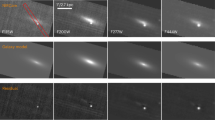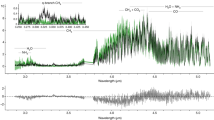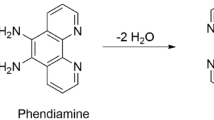Abstract
THE process of the slow luminous oxidation of phosphorus presents anomalies which are still incompletely understood. Thus, the non-occurrence of a glow in pure oxygen until the pressure is reduced to about 500 mm. of mercury, or an equivalent dilution with an inert gas is made, is very striking. No less difficult to explain is the ability of traces of certain vapours to inhibit the luminosity. These features are also exhibited in the slow oxidation of phosphorus trioxide, and it has been suggested that the phenomena of the glow of phosphorus are due to the trioxide formed in a preliminary non-luminous oxidation. Again, phosphine does not react with oxygen at ordinary pressures, but on reducing the pressure an explosion occurs.
This is a preview of subscription content, access via your institution
Access options
Subscribe to this journal
Receive 51 print issues and online access
$199.00 per year
only $3.90 per issue
Buy this article
- Purchase on Springer Link
- Instant access to full article PDF
Prices may be subject to local taxes which are calculated during checkout
Similar content being viewed by others
Author information
Authors and Affiliations
Rights and permissions
About this article
Cite this article
EMELÉUS, H. The Glow of Phosphorus. Nature 115, 460–461 (1925). https://doi.org/10.1038/115460c0
Issue Date:
DOI: https://doi.org/10.1038/115460c0
Comments
By submitting a comment you agree to abide by our Terms and Community Guidelines. If you find something abusive or that does not comply with our terms or guidelines please flag it as inappropriate.



